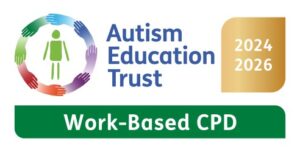Our curriculum: Maths
Learning mathematics inspires curiosity, nurtures creativity and provides children with the skills they need for the next steps in their learning and life beyond school. We implement a sequenced, knowledge rich curriculum that is progressive and builds on prior knowledge and skills over time.
Children develop their understanding of the numbers, patterns and shapes they see in the world around them, and learn ways of handling data in an increasingly digital world. They solve mathematical problems with enthusiasm, especially when problems lead them to an unexpected discovery or new connections. As they become more confident, they look for patterns, use logical reasoning, suggest solutions and try out different approaches.
Learning is achievable for all – we have high expectations and encourage a positive ‘can do’ mindset towards maths in all pupils, creating learning experiences which develop children’s resilience in the face of a challenge and carefully scaffolding learning so everyone can make progress.
There are opportunities for stretching and challenging children’s learning. Rather than accelerated content (moving onto next year’s concepts), teachers set tasks to deepen knowledge and improve reasoning skills within the objectives of their year group.
In line with the National Curriculum 2014 our teaching aims to ensure that all pupils:
- Become fluent in the fundamentals of mathematics, including through varied and frequent practice with increasingly complex problems over time, so that pupils develop conceptual understanding and the ability to recall and apply knowledge rapidly and accurately.
- Reason mathematically by following a line of enquiry, conjecturing relationships and generalisations, and developing an argument, justification or proof using mathematical language
- Can solve problems by applying their mathematics to a variety of routine and non-routine problems with increasing sophistication, including breaking down problems into a series of simpler steps and persevering in seeking solutions
Our Mastery Approach:
We intend to develop mathematicians through the engaging delivery of a high-quality mastery curriculum. Our mastery approach is informed by White Rose Maths and the National Centre for Excellence in the Teaching of Mathematics by their ‘five big ideas’ that underpin teaching for mastery.
- Coherence
Lessons are broken down into small, connected steps that gradually unfold the concept, providing access for all children and leading to a generalisation of the concept and the ability to apply the concept to a range of contexts.
- Representation and Structure
Maths is an abstract subject – it needs to be represented in a way that allows children to develop their understanding. As well as using a concrete, pictorial and abstract model, we carefully how maths is represented to ensure that it supports the mathematical concept being taught to be exposed.
- Mathematical Thinking
If taught ideas are to be understood deeply, they must not merely be passively received but must be worked on by the child: thought about, reasoned with and discussed with others.
- Fluency
Quick and efficient recall of facts and procedures and the flexibility to move between different contexts and representations of mathematics.
- Variation
Variation is twofold. It is firstly about how the teacher represents the concept being taught, often in more than one way, to draw attention to critical aspects, and to develop deep and holistic understanding. It is also about the sequencing of the episodes, activities and exercises used within a lesson and follow up practice, paying attention to what is kept the same and what changes, to connect the mathematics and draw attention to mathematical relationships and structure

 Castle Mead School, Mascroft Road, Trowbridge, WILTSHIRE, BA14 6GD, Tel: 01225 768641 | Email: office@castlemead.equamead.org | Email: nursery@castlemead.equamead.org |
Castle Mead School, Mascroft Road, Trowbridge, WILTSHIRE, BA14 6GD, Tel: 01225 768641 | Email: office@castlemead.equamead.org | Email: nursery@castlemead.equamead.org |